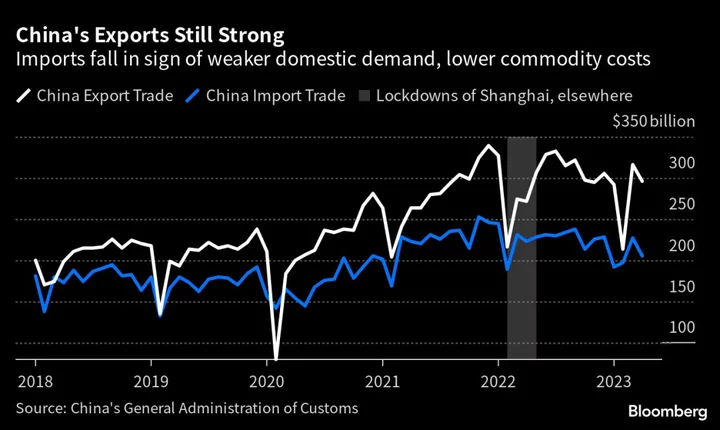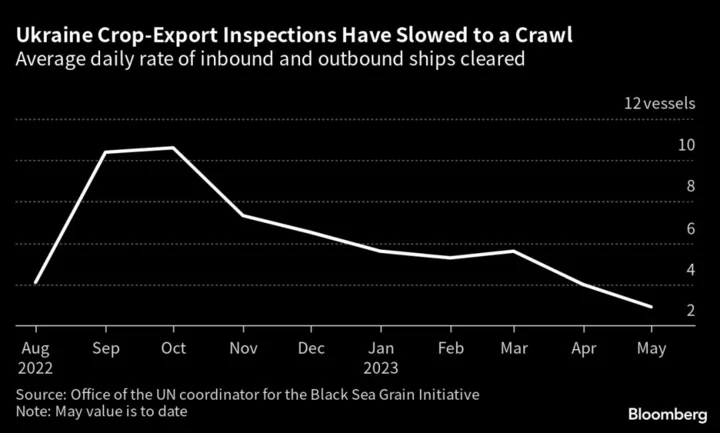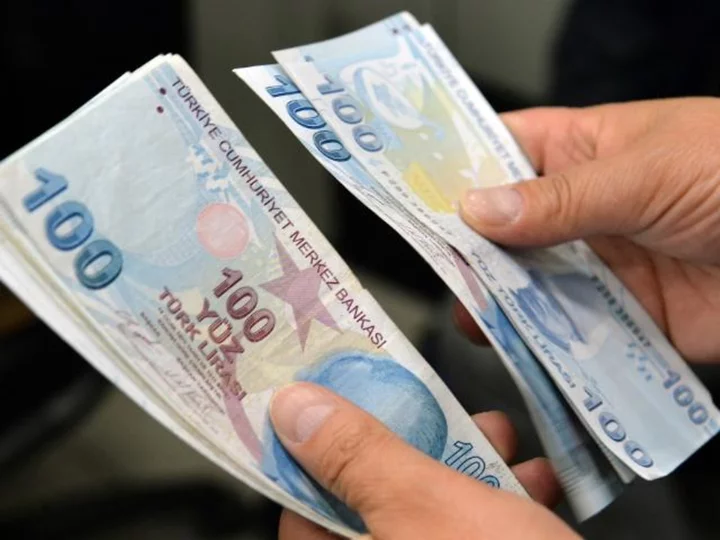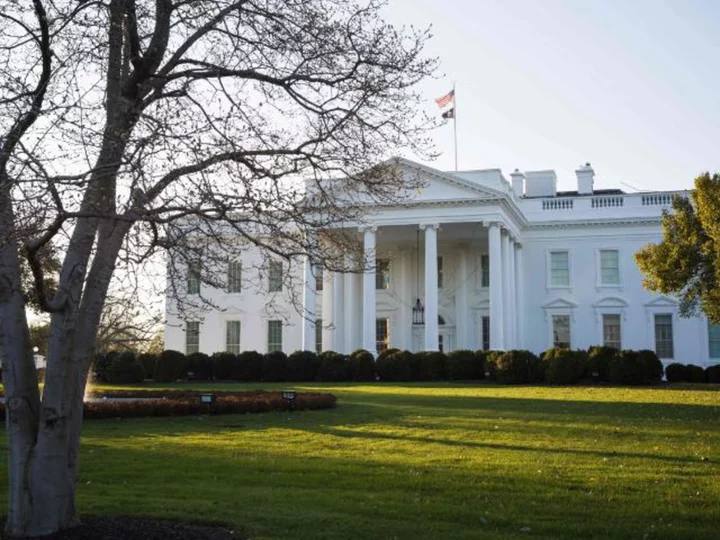China’s export growth slowed in April while imports plummeted, adding to pressures on an economic recovery that’s already been called into question.
Overseas shipments expanded 8.5% from a year earlier to $295 billion, the customs administration said Tuesday in Beijing — faster than expectations among economists surveyed by Bloomberg. Imports, though, dropped 7.9% to $205 billion, much worse than the median projection of a 0.2% decline. That left a trade surplus of $90 billion for the month.
Exports got a boost from still-resilient demand from places such as Southeast Asia, though April’s figures were also aided by a favorable comparison with last year. This time in 2022, major manufacturing areas in and around Shanghai along with other parts of the country were under lockdown, and companies were unable to get their goods to port.
Economists cautioned that the strong export figures aren’t likely to last forever. Shipments are expected to drop this year after hitting a record in 2022, with rising prices and interest rates in the rest of the world, high inventory levels and the war in Ukraine acting as brakes on global consumer demand.
China’s strong exports “can’t last if the US is weakening and Europe’s economy is kind of flat,” said Iris Pang, chief economist for Greater China at ING Groep NV in Hong Kong.
The deteriorating global economy will impact China’s manufacturing sector, she said — prompting the government to support the industry’s labor market through electric vehicle subsidies, increasing the speed of infrastructure project deliveries and other means.
What Bloomberg Economics Says ...
“Don’t be fooled by headline export figures from China that show shipments growing in April compared with last year, when the figures were depressed by pandemic lockdowns. The real picture is much weaker.”
— David Qu, economist
Read the full report here.
The poor showing for imports, meanwhile, may spell trouble for the country’s domestic rebound.
“Imports were quite disappointing, and would add concerns to China’s demand recovery story,” said Xiaojia Zhi at Credit Agricole CIB in Hong Kong. She suggested that import price deflation may be dragging on the headline figure given the drop in energy costs. Tech imports may also be negative due to the global slowdown in electronics demand and the relocation of supply chains.
Nations in Southeast Asia were China’s biggest trading partner in the first four months of this year, with trade with Asean countries reaching $305 billion, up 5.6% from a year ago and accounting for 15.7% of China’s overall trade.
Trade between the US and China was worth $218 billion, down 11.2%, while trade with the EU declined 3.5% year on year to $263 billion.
--With assistance from Ran Li, Yujing Liu, Wenjin Lv and Fran Wang.
(Updates throughout.)









